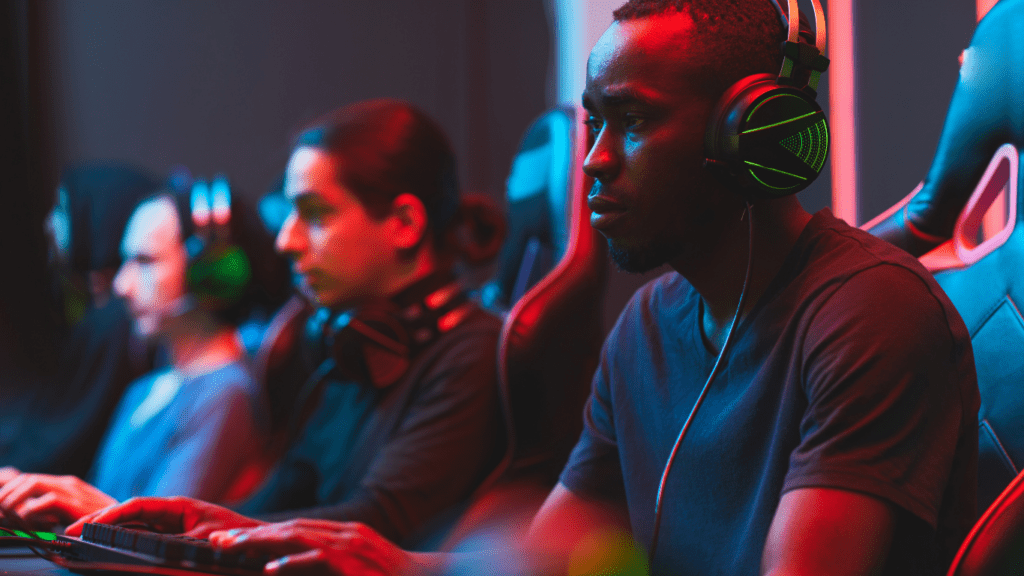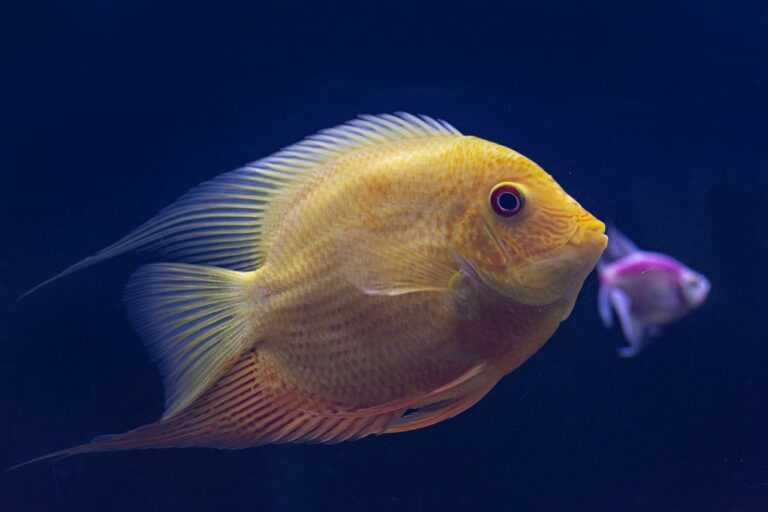Esports has exploded into a global phenomenon, transforming gaming from a casual pastime into a lucrative career path. As someone who’s navigated this exciting world, I know firsthand the thrill of turning a passion for gaming into a professional pursuit.
Whether you’re a weekend warrior or a dedicated gamer, the journey from amateur to pro player is filled with challenges and opportunities. In this article, I’ll share insights and strategies to help you kickstart your esports career.
From honing your skills to understanding the competitive landscape, I’ll guide you through the essential steps to elevate your game. If you’re ready to take your first leap into the vibrant world of esports, let’s dive in and explore how you can make your mark as a professional player.
Understanding Esports
Esports involves competitive gaming at a professional level. It’s not just about playing games; it’s about strategizing, teamwork, and skill development.
What Are Esports?
Esports, short for electronic sports, refers to organized multiplayer video game competitions. These events often feature professional players and teams competing in games like League of Legends, Dota 2, and Counter-Strike: Global Offensive.
The competitions can take place online or in physical arenas, drawing large audiences both in-person and via streaming platforms. Players develop specialized skills and techniques, participating in tournaments for substantial cash prizes and recognition within the gaming community.
The Growth of the Industry
The esports industry has experienced explosive growth over the past decade. In 2023, the global esports market reached approximately $1.44 billion in revenue, driven by sponsorships, advertising, and media rights.
Major tournaments attract millions of viewers, with some events rivaling traditional sports leagues in viewership. Game publishers heavily support the ecosystem, investing in leagues and tournaments to promote their titles.
As a result, a diverse range of career paths emerged, including professional players, coaches, analysts, and content creators, all contributing to the industry’s vibrant landscape.
Steps to Start Your Career
Starting a career in esports requires dedication, focus, and a strategic approach. Below are essential steps to help you progress from an amateur to a professional player.
Finding Your Game
Choosing the right game is crucial. Assess your interests and skills when deciding. Here are key considerations for selecting a game:
- Popularity: Select games that have a competitive scene, like League of Legends, Dota 2, or Counter-Strike: Global Offensive.
- Genre Preference: Consider your preferences in genres, whether it’s first-person shooters, multiplayer online battle arenas, or real-time strategy games.
- Community Support: Engage with games that have active communities. This access benefits practice sessions, gameplay tips, and networking opportunities.
- Esports Ecosystem: Analyze the tournament structure, professional players, and team options available in your chosen game.
Building Skills and Strategy
- Practice Regularly: Allocate time daily to sharpen your skills. Focus on mechanics, game knowledge, and reaction times.
- Watch and Learn: Observe professional players through streams or tournaments. Analyze their tactics and situational decisions to inform your own gameplay.
- Join Teams and Tournaments: Compete in amateur tournaments. Joining a team helps with teamwork and communication skills, essential elements in esports.
- Request Feedback: Seek constructive criticism from peers and mentors. Understanding your weaknesses enables targeted improvement.
- Study Game Mechanics: Delve into the intricacies of your game. Familiarize yourself with heroes, items, and meta shifts to gain a competitive edge.
Creating an Online Presence
Building an online presence is vital for aspiring esports players. It showcases skills, connects with audiences, and enhances career opportunities.
Streaming and Content Creation
Streaming gameplay on platforms like Twitch and YouTube attracts viewers and showcases skills. Consistent streaming schedules foster audience loyalty and engagement. Creating highlight reels, tutorials, or funny moments helps diversify content.
Maintaining professionalism while being authentic builds trust with followers. Moreover, collaborating with other streamers can expand reach and visibility.
Engaging with the Community
Engaging with the esports community strengthens relationships and builds a following. Participating in forums and social media platforms like Twitter and Discord encourages interaction with fans and fellow gamers.
I share insights, answer questions, and provide support to promote a positive image. Attending esports events, both online and in-person, helps forge connections and gain exposure. Building a reputation within the community can lead to sponsorships and collaborations that enhance career prospects.
Joining the Competitive Scene
Joining the competitive scene is crucial for transitioning from amateur to pro player. Engaging in tournaments and connecting with others in the industry accelerates growth and opens doors.
Finding Tournaments and Teams
Finding tournaments and teams requires strategic research. Use platforms like Battlefy, ESL, and Faceit to locate competitions in your chosen game. Look for both local and online tournaments to gain diverse experiences.
Many games have community forums or Discord servers where players share information about upcoming events. Participate in amateur leagues to build your skills and gain exposure. Joining or forming a team enhances your chances of success, as collaborative practice leads to improved gameplay.
Teams often provide a support network, enabling members to share strategies and motivate one another.
The Importance of Networking
Networking plays a vital role in a successful esports career. Connect with fellow players, organizers, and influencers on social media platforms like Twitter, LinkedIn, and Reddit. Attend gaming conventions and local events to meet industry professionals in person.
Building relationships can lead to opportunities, such as sponsorships, coaching offers, and invitations to exclusive tournaments. Engaging with the community fosters visibility while also providing support and resources.
Remember to demonstrate professionalism and a positive attitude in all interactions, as reputation matters in esports.
Maintaining Balance and Health
Maintaining balance and health plays a crucial role in an esports career. I understand that managing time and stress effectively, along with staying physically active, significantly impacts performance and well-being.
Managing Time and Stress
Managing time involves creating a structured schedule that allocates time for practice, gameplay, and relaxation. I prioritize tasks through to-do lists and set specific goals to ensure productivity.
I incorporate breaks into my routine to prevent burnout and enhance focus. Stress management techniques like mindfulness, meditation, or deep-breathing exercises can help maintain composure during intense gaming sessions.
Engaging with friends or fellow players for emotional support can also alleviate stress, fostering a community spirit in competitive environments.
Staying Physically Active
Staying physically active contributes to improved mental clarity and overall health. I make it a habit to exercise regularly, aiming for at least 150 minutes of moderate aerobic activity per week, such as jogging, cycling, or swimming.
Additionally, integrating strength training at least twice a week supports muscle health and endurance. I also prioritize flexibility exercises, like yoga or stretching, which help reduce tension and prevent injuries due to long hours of gameplay. Balancing gaming with physical activity enhances my stamina, focus, and overall performance in esports.













































































































































































































































































































































































































































































































































































































































































































































































































































































































































































































































































































































































































































































































































































































































































































































































































































































































































































































































































































































































































































































 As a content specialist and tech-savvy gaming enthusiast, Christopher Elliotterio brings clarity and depth to Power Gamer Strategy Hub’s tutorials and player guides. His contributions focus on helping gamers master mechanics, optimize strategies, and explore new genres with confidence. Through his accessible and detailed writing, Christopher plays a key role in educating and empowering the gaming community.
As a content specialist and tech-savvy gaming enthusiast, Christopher Elliotterio brings clarity and depth to Power Gamer Strategy Hub’s tutorials and player guides. His contributions focus on helping gamers master mechanics, optimize strategies, and explore new genres with confidence. Through his accessible and detailed writing, Christopher plays a key role in educating and empowering the gaming community.